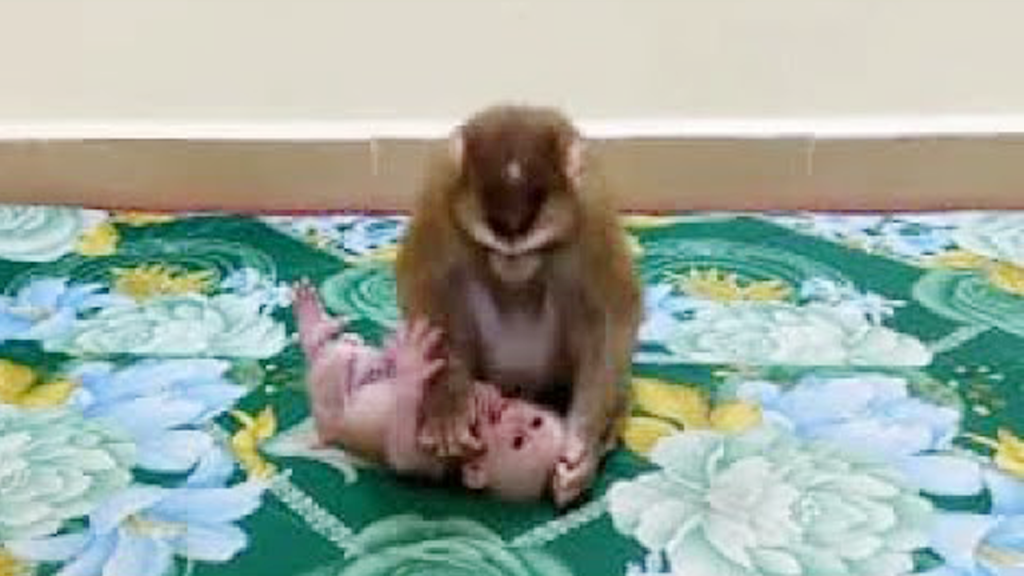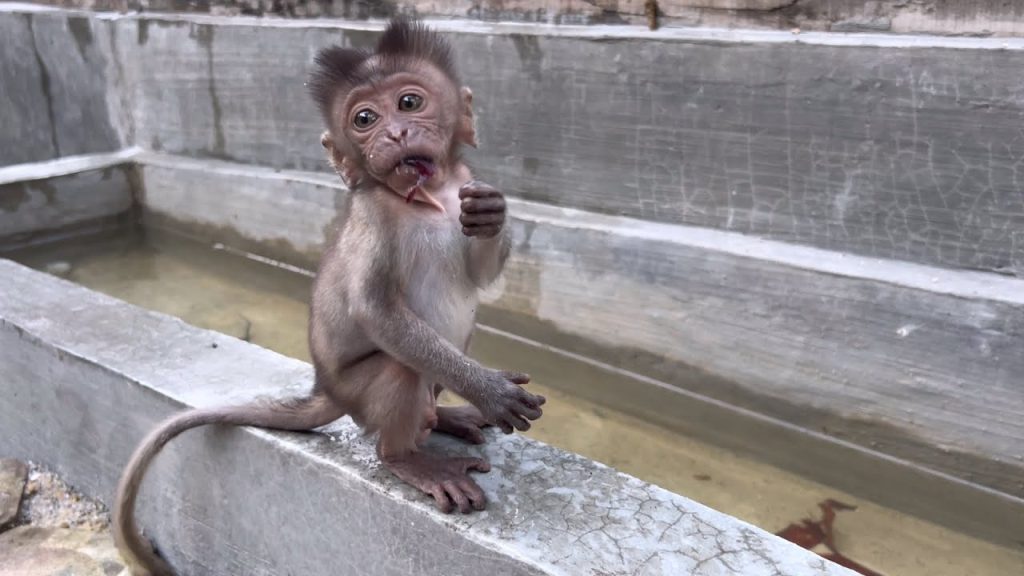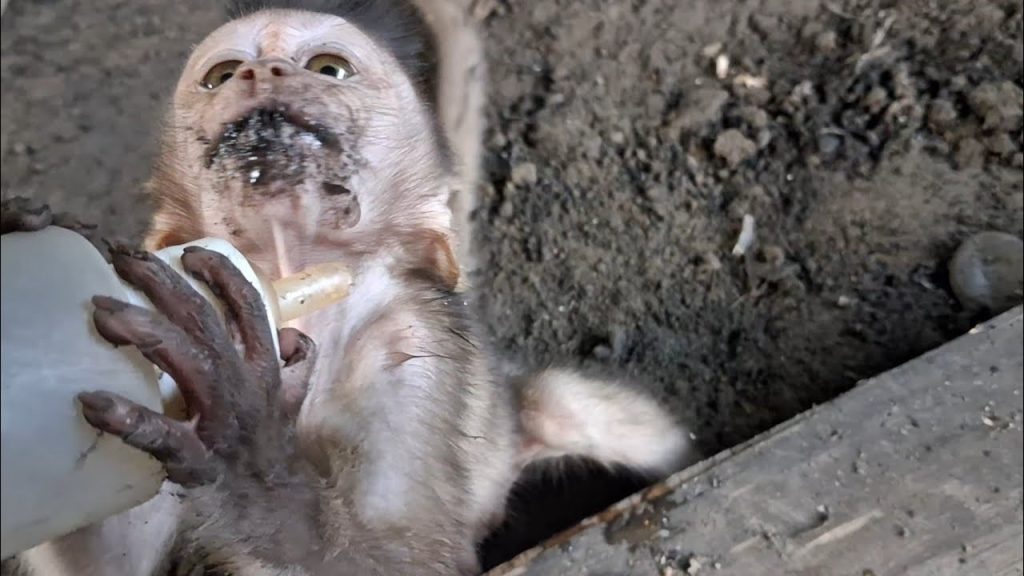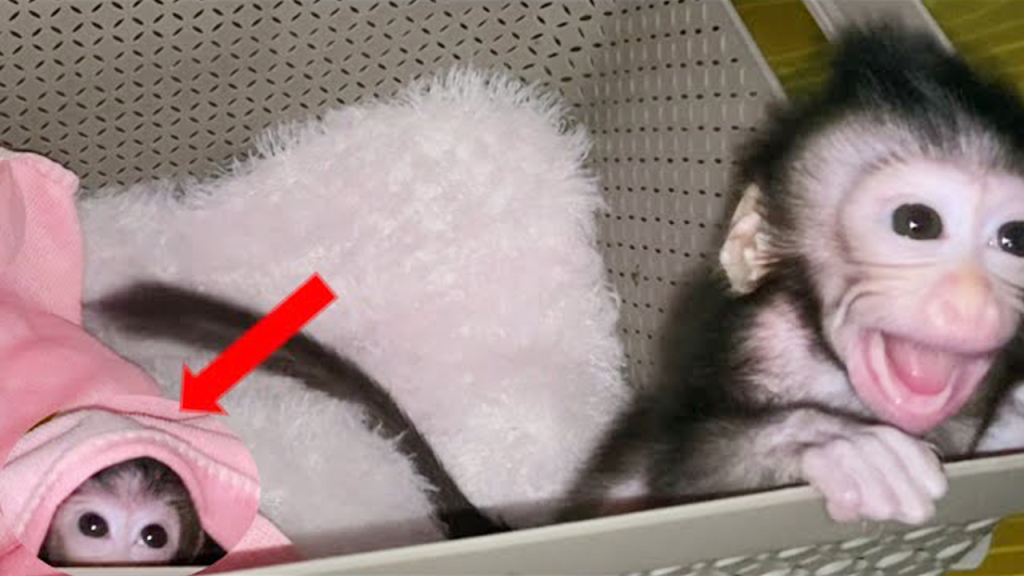
When Chichi becomes extremely angry because Jenny is playing in a naughty, reckless way, we are not merely seeing a small outburst — we are witnessing a tiny nervous system trying to protect its sense of fairness, space, and social safety. For baby monkeys, play is not just entertainment. Play is the laboratory where social rules are discovered, where boundaries are tested, where dominance is challenged, where trust is built. When Jenny crosses the invisible emotional line — maybe by grabbing too hard, maybe by teasing, maybe by not sharing, maybe by interrupting Chichi’s control of an object — Chichi does not have language to negotiate. She cannot say “stop” politely. She cannot explain her discomfort. So the body becomes the voice. Anger becomes the expression.
Her loud reaction — the scream, the backward throw, the floor collapse, the intense face pressure — is an alarm system. Anger in young primates is never “random.” It is always a signal. Chichi is communicating that her current level of overstimulation has passed the threshold where she can cope.
Jenny, meanwhile, is not “evil.” Jenny’s naughty behaviour is not malicious planning. Jenny is still learning how much force is acceptable. She may think she is stimulating fun. She may think she is being clever. She may even think she is strengthening the social bond through dramatic play. But because her impulse control is not developed, she pushes too far. That mismatch — one monkey’s curiosity versus another monkey’s fragility — becomes conflict.
Because if Chichi’s anger is ignored, her brain will record the event as “unfairness is permanent.” That turns into anxiety later. And if Jenny’s roughness is ignored, her brain will learn “aggression pays.”
So these tiny episodes matter more than they appear.
This one moment of anger is not just a little scene — it is the classroom where emotional intelligence is built. Chichi is fighting for boundaries. Jenny is experimenting with power. And with gentle correction, both of them can eventually grow into adults who choose safe, mutual play instead of unregulated chaos.


